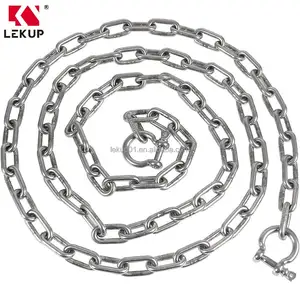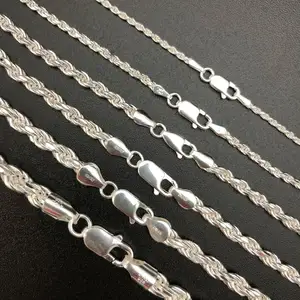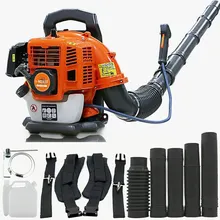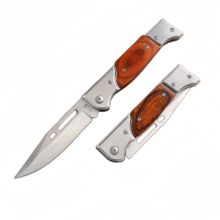What are Link Chains?
Link chains are a series of connected links which are typically made of metal and can come in various shapes, sizes, and materials. These chains serve as fundamental components in numerous applications—ranging from industrial machinery to fashion jewelry. In an industrial context, link chains are used for lifting, securing, or transmitting power. In the fashion industry, they are often used as stylish accessories or in the design of necklaces and bracelets.
The principle on which link chains operate is fairly straightforward. Each individual link acts as a strong interconnection point, creating a flexible yet durable line that can bear weight or tension. The strength of a chain is determined by the material it’s made from, the size of the links, and the method of manufacturing. For instance, welded chains, where each link is individually joined to another with a weld, tend to offer higher strength and are suitable for heavy-duty use.
Depending on the application, link chains can be designed to be load-bearing, decorative, or even both. The versatility of link chains makes them indispensable in many fields such as maritime activities, where they are used for anchoring ships; construction sites, where they may be found in cranes lifting heavy materials; and in everyday objects like bicycle locks or dog leashes.
Types of Link Chains
Link chains can be classified into several types depending on their design and intended use. Understanding these different types helps users select the appropriate chain for their specific needs:
Welded Chain: Commonly used in industrial settings due to its high strength derived from welded links. It's ideal for lifting heavy loads and is often found in hoisting equipment.
Rope Chain: This type of chain features twisted links that resemble a rope pattern. It's frequently used in jewelry for its aesthetic appeal.
Figaro Chain: Characterized by a pattern of alternating short and long links, Figaro chains are popular in fashion accessories for both men and women.
Box Chain: Made up of square links rather than rounded ones, box chains have a sturdy appearance and are often worn as necklaces.
Snake Chain: Comprising tightly connected rings which form a smooth, sleek chain resembling a snake's skin. It's commonly utilized in making elegant and contemporary jewelry pieces.
Strand Chain: Typically involves multiple rows of links interwoven together to create a thick band. This type is often used for statement jewelry pieces.
How to Choose Link Chains
When selecting link chains for business purposes on Alibaba.com, there are several factors that companies need to consider:
Material: The choice of material impacts the chain's durability, appearance, and cost. Options include low carbon steel for general use, alloy steel for added strength, stainless steel for corrosion resistance, and precious metals like silver or gold for jewelry.
Chain Type: The application will dictate the type of chain required. For example, welded and alloy steel chains are appropriate for industrial lifting tasks while rope or figaro chains may be preferred for fashion jewelry.
Size and Strength: The size of the links and the overall strength of the chain must align with the operational requirements. Heavier applications demand larger and stronger chains.
Finish: Various finishes such as zinc-plating or galvanizing can enhance corrosion resistance or provide an attractive appearance for decorative use.
Businesses should also consider specific product attributes such as plating options (for aesthetic purposes), the structure (whether welded or not), standards (if a particular industry standard must be met), and additional features like protective coatings or heat treatments that could extend the life of the chain under certain conditions.
Best Link Chains on Alibaba.com
Alibaba.com stands out as an expansive marketplace that caters to businesses seeking reliable suppliers for high-quality link chains across various applications. With an extensive network of verified suppliers from around the globe, Alibaba.com offers businesses an unparalleled selection of link chains suitable for any need—from heavy-duty industrial operations to exquisite jewelry design.
Alibaba’s platform provides buyers with advanced filtering options to narrow down their search according to specific requirements such as material, plating type, structure, and application. This level of customization ensures that businesses can find exactly what they need efficiently. Moreover, Alibaba.com’s Trade Assurance service adds an extra layer of security by protecting payments until buyers confirm that their order meets their expectations upon delivery.
Choosing Alibaba.com means tapping into nearly two decades of experience in facilitating B2B transactions on a global scale. The intuitive platform simplifies international trade by providing tools that allow communication in local languages and mobile-friendly features for purchasing on-the-go. With its commitment to helping small and medium-sized enterprises thrive in the global marketplace, Alibaba.com is an indispensable resource for businesses looking to source wholesale link chains with confidence.
Common FAQs for Link Chains
What Are the Main Applications of Link Chains in Industry?
Link chains are extensively used in various industrial applications such as lifting and hoisting, anchoring ships, securing cargo, and as components in machinery for transmission of mechanical power.
How Do I Determine the Correct Size and Strength of a Link Chain for My Needs?
The size and strength required for a link chain depend on the specific application, including the weight of the items to be lifted or secured and the environmental conditions. It is essential to consult industry standards and possibly an engineer to ensure the correct chain is selected.
Can Link Chains Be Customized for Specific Requirements?
Yes, link chains can often be customized based on specific requirements such as length, material grade, type of plating, and overall strength. Suppliers may offer customization services to meet particular industry needs.
What Materials Are Commonly Used to Make Link Chains?
Common materials for link chains include carbon steel for general-purpose use, alloy steel for increased strength demands, stainless steel for corrosion resistance, and various precious metals for decorative or jewelry applications.
What Are the Differences Between Welded and Non-Welded Chains?
Welded chains have individual links that are permanently joined together by welding, providing added strength and durability. Non-welded chains have mechanically closed links and are generally used for lighter-duty applications.
How Important Is the Finish of a Link Chain?
The finish of a link chain is crucial as it can provide additional properties such as corrosion resistance or an aesthetically pleasing appearance. Finishes like zinc plating or galvanizing are common for industrial chains, while decorative finishes are popular in jewelry.
What Should I Consider When Choosing a Link Chain for Lifting Purposes?
For lifting purposes, consider the chain's working load limit, material grade, durability under load conditions, and compliance with relevant safety standards. It is also important that the chain is inspected regularly for signs of wear or damage.
How Can I Ensure the Quality of a Link Chain Before Purchase?
To ensure quality, look for suppliers who adhere to recognized industry standards and certifications. Additionally, verify if they provide detailed product specifications and utilize quality control measures during manufacturing.
Are There Industry Standards That Regulate Link Chains?
Yes, there are several industry standards that regulate link chains, such as ASTM (American Society for Testing and Materials), ISO (International Organization for Standardization), and DIN (German Institute for Standardization), which outline specifications for different types of chains used in various applications.
How Does Chain Link Diameter Affect the Load Capacity?
The diameter of a chain link directly affects its load capacity; larger diameters typically indicate a higher load-bearing ability. However, material strength and type of construction also play significant roles in determining overall load capacity.












































 浙公网安备 33010002000092号
浙公网安备 33010002000092号 浙B2-20120091-4
浙B2-20120091-4